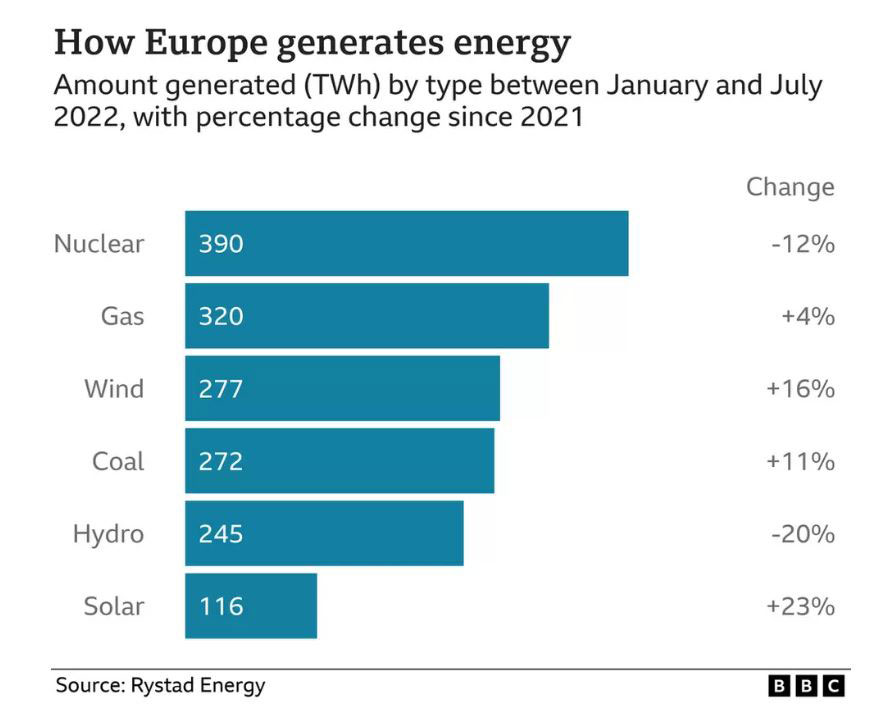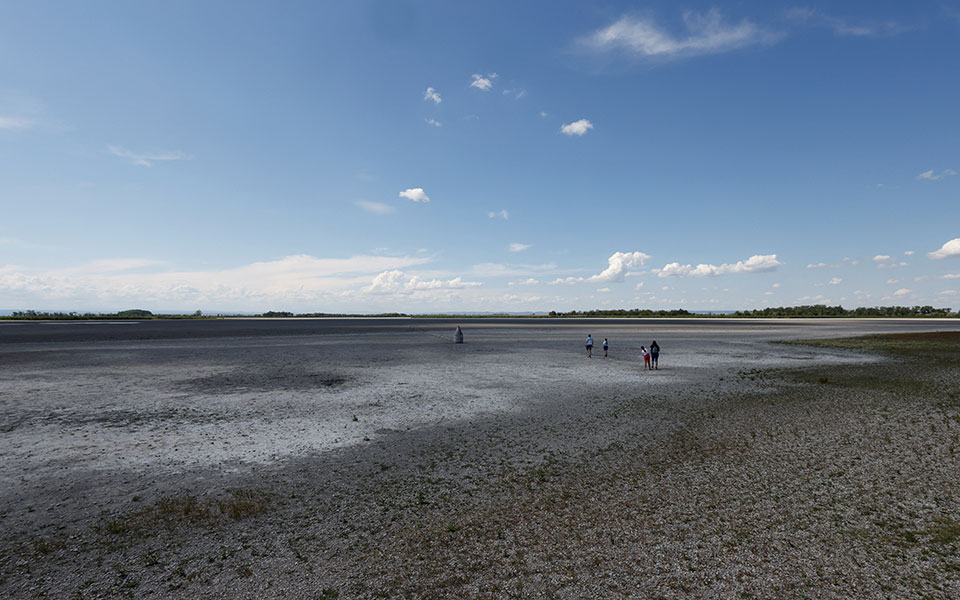
Further pressure on Europe’s energy supply, which has struggled to find alternative sources of energy following Russia’s invasion of Ukraine and Moscow’s post-sanction instrumentalization of gas supplies, is being put by a prolonged drought due to climate change. Hydroelectric power plants, nuclear reactors and solar panels cannot operate at full capacity, energy production is falling sharply, and some analysts believe that this is a difficult situation that gives Europeans anticipation of the coming winter.
Electricity from hydroelectric power plants was reduced by a total of 20%. Nuclear plants are also experiencing cutbacks in production as water is used to cool reactors. in United Kingdom, high temperatures affect energy production from both fossil and solar sources. This is due to the fact that the technology at the stations does not work at high temperatures. Not Italy it gets about 1/5 of its capacity from hydro, with a reduction of about 40% in the last 12 months.
A similar scene in Spain, where the amount of electricity produced fell by 44%, according to energy researchers Rystad Energy. “Hydropower generation can be affected by volatile factors, but a 40% reduction is absolutely extreme,” says Rystad Energy analyst Fabian Ronningen.

OUR Norway also faces problems with hydropower. The government warns that it may not be able to continue exporting energy to countries such as the UK. AT France, about half of the fleet’s 56 reactors have been shut down, and some have suffered corrosion. These reactors are cooled by river water, which is now at a low level and at a high temperature.
“When the river level is too low and the water is too warm, you have to stop cooling the nuclear power plants. This is because the discharged water is dangerous for fish and other species in the rivers,” said Prof. Sonja Seneviratne from the Federal Institute of Technology Zurich. The French government is allowing some facilities to dump very hot water back into rivers as a temporary measure.

Countries including the UK and France depend on each other’s electricity market.
It is noted that the rivers of France may not be the main transport arteries, but they serve to cool nuclear plants that generate 70% of the country’s electricity.
“If both the French and British systems are under pressure at the same time, then no one really knows what will happen,” Ms Porter says, emphasizing that this is a foretaste of what could happen in winter, and warning that there could be restrictions on the use of energy for large consumers.
Source: BBC
Source: Kathimerini
Anna White is a journalist at 247 News Reel, where she writes on world news and current events. She is known for her insightful analysis and compelling storytelling. Anna’s articles have been widely read and shared, earning her a reputation as a talented and respected journalist. She delivers in-depth and accurate understanding of the world’s most pressing issues.